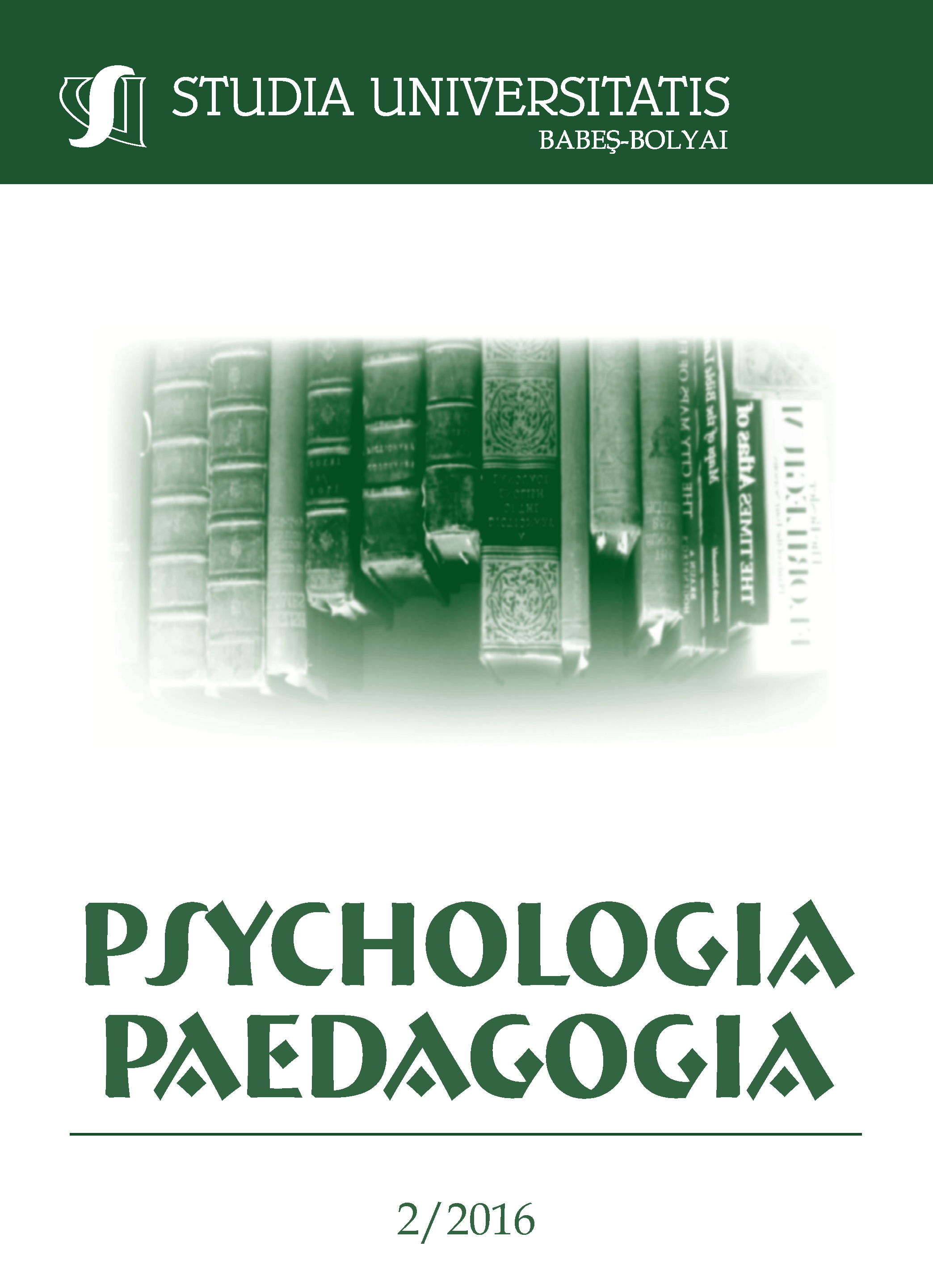DESIGNING THE ASSESSMENT FOR A COMPETENCE – BASED CURRICULUM. A CONCEPTUAL FRAMEWORK
Keywords:
competence, curriculum design, assessment.Abstract
The article presents a synthesis and an analysis of the literature aiming to create conceptual framework for the assessment of the competence based-curriculum. Contemporary orientations in education promote the necessity and the importance of the competences development through an adequate curriculum design. In this context the curriculum assessment becomes extremely important because its role is to provide information about the effectiveness and functionality of the education process and of the education system, as a whole, in order to improve it. In this study we aim to define and describe the processuality implied by the assessment of a competence-based curriculum, analysing the levels and the stages that are involved.
ZUSAMMENFASUNG. Der Artikel stellt eine Zusammenfassung und eine Literaturanalyse vor und zielt einen begrifflichen Rahmen zu schaffen, der relevant für die Beurteilung des Kompetenzen–zentriet Curriculums ist. Die zeitgenössische Leitlinien in Bildung fördern die Notwendigkeit und die Bedeutung der Ausbildung den Kompetenzen bei Schülern durch eine geeignete Gestaltung des Curriculums. In diesem Kontext wird die curriculare Beurteilung extrem wichtig, weil ihre Rolle Informationen über die Effektivität und Funktionalität des Bildungsprozesses und des Bildungssystems als Ganzes im Hinblick auf seiner Verbesserung anzubieten ist. In dieser Studie haben wir vor die Prozessualität der Beurteilung des Kompetenzen–zentriet Curriculums zu definieren und zu konturieren. Wir analysieren auch die Ebenen und die Stufen, die dieses Curriculum betrifft.
Schlüsselwörter: Kompetenz, Curriculumgestaltung, Bewertung
References
Andronache, D. (2014). Proiectarea curriculumului centrat pe competenţe. Perspective analitice și investigative. București: Editura Universității din București.
Andronache, D., Bocoș, M., Neculau, B. (2015). A systemic-interactionist model to design a competency-based curriculum. Procedia. Social and Behavioral Sciences. Philadelphia: Elsevier, 717 – 721.
Barrett, G.V., & Depinet, R.L. (1991). A reconsideration of testing for competence rather than for intelligence. American Psychologist, 46, 1012-1024.
Bennet, N., Dunne, E., Caree, C. (1999). Patterns of core and generic skill provision in higher educatin. Higher education 37 (1), 18-27.
Bocoş, M. (2008). Teoria curriculumului. Elemente conceptuale şi metodologice. Cluj-Napoca: Editura Casa Cărţii de Ştiinţă.
Dooley, K.E. et al. (2004). Behaviourally anchored competencies: evaluation tool for training via distance. Human Resource Development International, 7 (3), 315-332.
Jeris, L.; Johnson, K. (2004). Speaking of competence: toward a cross-translation for human resource development (HRD) and continuing professional education (CPE). Academy of Human Resource Development Annual Conference: proceedings, 2, 1103-1110.
Korthagen, F. (2004). In search of the essence of a good teacher: Towards more holistic approch in teacher education. Teaching and teacher education, 20 (1), 42-56.
Kouwenhoven, W. (2010). Competence-based curriculum development in higher education: some African experiences. In Cantrell, M., Kool, M., W. Kouwenhoven (Eds.) (2010). Access & Expansion: Challenges for Higher Education Improvement in Developing Countries. Amsterdam: VU University Press, 125-146.
Mirabile, R.J. (1997). Everything you wanted to know about competency modeling. Training and Development, 28, 73-77.
Nevo, D. (2006). Evaluation in education. In Ian F. Shaw; Jennifer C.Greene; Melvin M. Mark (2006). The SAGE, Handbook of Evaluation. Policies, Programs and Practices. London: SAGE Publications, 441-446.
Parry, S.B. (1996). The quest for competences: Competency studies can help you make HR decision, but the results are only as good as the study. Training, 33, 48-56.
Potolea, D, Toma, S. (2010). Competenţa: concept şi implicaţii pentru programele de formare a adulţilor, a III-a Conferinţă naţională de educaţie a adulţilor, Timişoara.
Stoof, A., Martens, R.L., Van Merriënboer, J.J.G., and Bastiaens, T.J. (2002). The boundary approach of competence: a constructivist aid for understanding and using the concept of competence. Human Resource Development Review, 1, 345–36.
Teichler, U. (1998), Thematic debate: the requirments of the world of work. Paper predented at the UNESCO World Conference on Higher Education in the 21st century: Vision and Action.
Tyler, R. (1949). Basic principles of curriculum and instruction. Chicago: The University of Chicago Press.
Wolf, P., Hill, A., Evers, F.A (2006). Handbook for Curriculum Assessment. Guelph: University of Guelph Publications.
Webster's Online Dictionary: http://www.webster-dictionary.org/definition/Competence
Downloads
Published
How to Cite
Issue
Section
License
Copyright (c) 2016 Studia Universitatis Babeș-Bolyai Psychologia-Paedagogia

This work is licensed under a Creative Commons Attribution-NonCommercial-NoDerivatives 4.0 International License.





